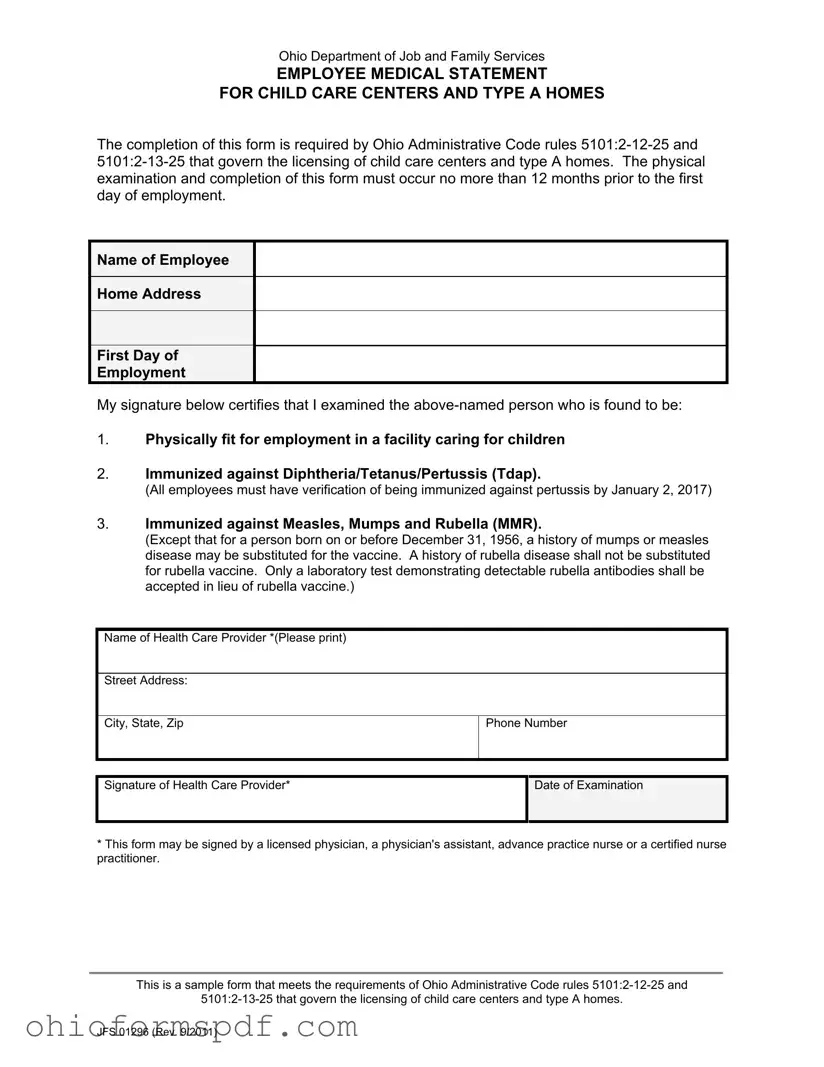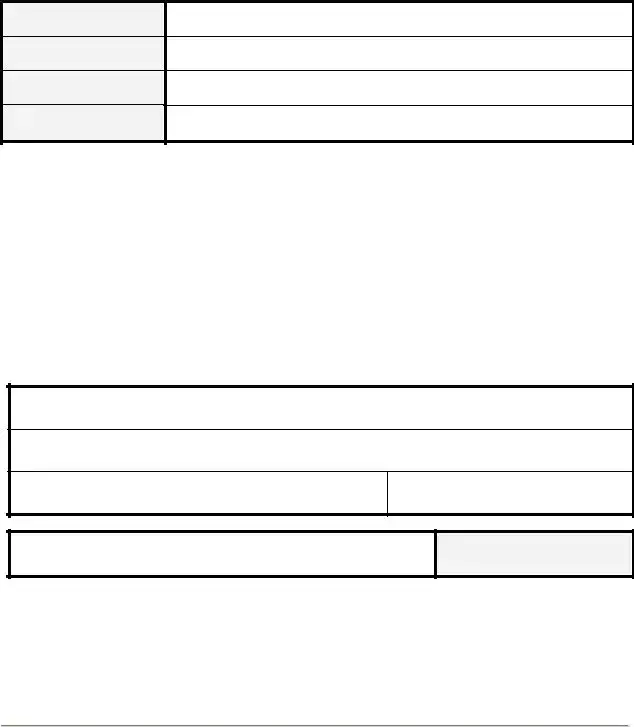The Ohio Jfs 01296 form, used for certifying the physical fitness and immunization status of employees in child care settings, shares similarities with the Employment Eligibility Verification Form I-9. Both forms are mandatory for employment, with the I-9 required to verify the identity and employment authorization of individuals hired for employment in the United States. While the Jfs 01296 focuses on health criteria crucial for a safe child care environment, the Form I-9 ensures compliance with the legal working status, reflecting the compliance aspect both in healthcare and employment law.
Another document similar to the Jfs 01296 is the Child Abuse Registry Check Consent Form. This form is also a prerequisite for employment in environments involving children, including child care centers. It authorizes the check of the employee's name against child abuse and neglect registries to ensure the safety of the children under their care. Whereas the Jfs 01296 ensures physical and immunization readiness, the registry check focuses on legal and safety backgrounds, complementing each other in protective measures for child welfare.
Comparable to the Jfs 01296 is the School Personnel Health Record. This document is required by educational institutions to verify the health status of employees working directly with children. It often includes parts on physical fitness, immunizations, and TB testing. Though tailored to an educational setting, its purpose aligns with the Jfs 01296's objective of ensuring a healthy environment for children by assessing the health status of personnel.
The Volunteer Health and Immunization Record is another document with similarities to the Ohio Jfs 01296 form. This form is typically used by organizations that require health records for volunteers working closely with vulnerable populations, including children. Like the Jfs 01296, this ensures volunteers are physically fit and properly immunized, mitigating health risks in environments similar to child care centers and type A homes.
The Pre-Employment Physical Examination Form, often required by various employers, bears resemblance to the Jfs 01296 as well. This form evaluates an individual's overall physical ability to perform job-specific duties. Although it is used across a wide range of occupations, its core purpose of certifying fitness for employment parallels that of the Jfs 01296, which focuses on physical fitness for child care environments.
Analogous to the Jfs 01296, the Vaccination Verification Form for Health Care Workers primarily focuses on the immunization aspect. Such forms are obligatory for employees in healthcare settings to ensure they are immunized against infectious diseases. The emphasis on vaccination in both the Jfs 01296 and this form is central to preventing the spread of illnesses, crucial in healthcare as well as child care settings.
Lastly, the Annual Health and Wellness Screening Form, often used by employers to encourage health and wellness among employees, shares the preventative health approach seen in the Jfs 01296. While it serves more as a voluntary wellness tool rather than a requirement, its role in monitoring health conditions and immunization status aligns with the objectives of maintaining a healthy environment for both employees and, in the case of the Jfs 01296, children in their care.
In conclusion, although the Ohio Jfs 01296 form is uniquely tailored to the child care sector, its elements of physical fitness verification and immunization status are echoed in various other documents across employment, educational, healthcare, and volunteer settings. Each of these documents contributes to safeguarding the wellbeing of specific populations, emphasizing the universal importance of health and safety standards in diverse environments.


